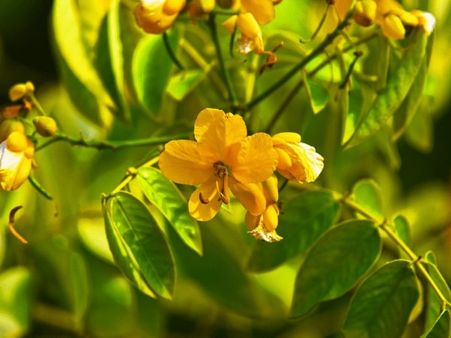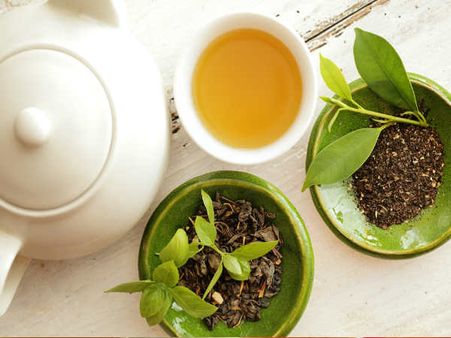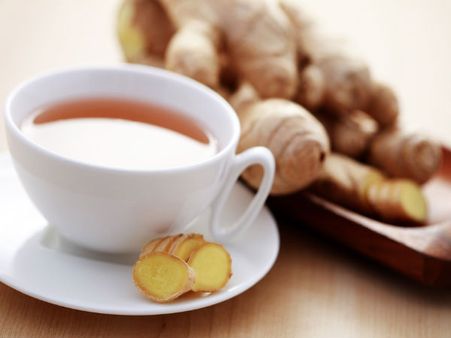Just In
- 3 hrs ago

- 12 hrs ago

- 14 hrs ago

- 15 hrs ago

Don't Miss
- Education
 JEE Main Result 2024 Out, Telangana's 15 Toppers Shine, Check Statewise List of 56 Candidates with Perfect 100
JEE Main Result 2024 Out, Telangana's 15 Toppers Shine, Check Statewise List of 56 Candidates with Perfect 100 - Sports
 Who Won Yesterday's IPL Match 40? DC vs GT, IPL 2024 on April 24: Delhi Capitals Clinch High-Scoring Thriller At Kotla
Who Won Yesterday's IPL Match 40? DC vs GT, IPL 2024 on April 24: Delhi Capitals Clinch High-Scoring Thriller At Kotla - News
 Mangalsutra Row: Did Indira Gandhi Donate Gold During The 1962 War? The Facts Behind Priyanka's Claim
Mangalsutra Row: Did Indira Gandhi Donate Gold During The 1962 War? The Facts Behind Priyanka's Claim - Movies
 Kota Factory 3 OTT Release Date, Platform: When Will Jitendra Kumar's Web Series Premiere On Netflix?
Kota Factory 3 OTT Release Date, Platform: When Will Jitendra Kumar's Web Series Premiere On Netflix? - Travel
 Escape to Kalimpong, Gangtok, and Darjeeling with IRCTC's Tour Package; Check Itinerary
Escape to Kalimpong, Gangtok, and Darjeeling with IRCTC's Tour Package; Check Itinerary - Finance
 DCB Bank Q4 Results: PAT Grew 9% To Rs 156 Cr, NII Jumps 4.5%; Dividend Declared
DCB Bank Q4 Results: PAT Grew 9% To Rs 156 Cr, NII Jumps 4.5%; Dividend Declared - Technology
 OPPO Find X7 Ultra Camera Deep-Dive: Pushing the Boundaries of Photography on a Smartphone
OPPO Find X7 Ultra Camera Deep-Dive: Pushing the Boundaries of Photography on a Smartphone - Automobiles
 Aston Martin Vantage Launched In India At Rs 3.99 Crore
Aston Martin Vantage Launched In India At Rs 3.99 Crore
7 Herbal Teas That Can Help Ease Constipation
Constipation occurs when bowel movements become less frequent (less than three bowel movements per week) and stools become hard, dry and difficult to pass. Though occasional constipation is common, some people experience chronic constipation that can interfere with their day-to-day activities.
Less intake of dietary fibre, physical inactivity, not drinking enough water, taking certain medications and irritable bowel syndrome (IBS) are some of the common causes of constipation.

Lifestyle
changes
and
home
remedies
can
help
treat
constipation,
and
if
these
don't
work
then
medications
are
recommended
by
the
doctor
to
treat
constipation.
Some
people
use
herbal
tea
as
a
home
remedy
to
ease
constipation
because
herbal
teas
are
known
for
their
soothing
and
laxative
properties.
In
this
article,
we'll
talk
about
the
herbal
teas
for
constipation.
Why Are Teas Used To Treat Constipation?
For centuries, people have been using herbal teas to ease digestive problems [1]. And studies have shown that certain teas can help bring relief from constipation, either directly or indirectly [2]. Most laxative herbs contain anthraquinones, an organic compound found in some plants that have a laxative effect on the intestines. These laxatives work by moving the water to the colon and increasing peristalsis, the muscle contractions of the intestines that helps move body waste through the colon to the rectum.

Herbal Teas For Constipation
Herbal teas can be made from a combination of herbs or a mixture of leaves, seeds, roots of various plants and hot water [3]. Here are some teas that are commonly used to relieve constipation:
1. Senna tea
Senna tea is made from the dried leaves and pods of the Senna alexandrina shrub, an important medicinal plant widely used in Ayurveda. The senna plant possesses compounds called glycosides that act as a laxative, which works by stimulating the intestines to move the stool through the colon [4] [5].
How to make senna tea:
- Steep 1-2 g of dried senna leaves in hot water for 10 minutes. Strain it in a cup and add honey to taste.
- Do not drink more than two cups per day.


2. Cascara tea
Cascara sagrada is a well-known laxative that comes from the bark extract of the California buckthorn tree. The bark contains anthraquinones that have a laxative effect in the intestines and stimulates the bowels. It works by causing muscle contractions in the intestines, which helps move the stool through the bowels [6].
How to make cascara sagrada tea:
- Steep 1 tsp of bark shavings in two-thirds cup of boiling water for 5-10 minutes.
- Strain the tea before drinking.
- Do not drink too much of cascara tea.

3. Peppermint tea
Peppermint tea may help prevent and treat constipation. The presence of menthol in peppermint has a soothing effect that may help relax an upset stomach while moving stool through the bowel.
How to make peppermint tea:
- Boil a cup of water and add a handful of peppermint leaves.
- Allow the water to boil for a few more minutes.
- Strain the tea and drink it.


4. Green tea
Green tea contains caffeine, a stimulant that speeds up bowel movements. However, drinking too much caffeine can lead to diarrhoea. A 2016 animal study showed that green tea contains a compound called strictinin that had a greater laxative effect and increased the bowel movement when it was fed to rats [7].
How to make green tea:
- Steep 1 tsp of green leaves in a cup of boiling water.
- Allow it to sit for few minutes.
- Strain the tea and drink it.

5. Dandelion tea
Dandelion tea may help with mild constipation. It can stimulate the liver to produce bile which can help ease constipation. Dandelion tea can also act as a diuretic by adding more water to the digestive system and to the stool, thus making the stool soft and easier to pass.
How to make dandelion tea:
- Wash the flowers and leaves of the dandelion plant and steep it in hot water for 15-20 minutes.
- Strain the tea and drink it.

6. Ginger tea
Ginger is both used as a spice and as a home remedy to treat various gastric ailments including constipation. Drinking ginger tea after meals can help ease digestion and speed up bowel movements [8].
How to make ginger tea:
- Add 1-2 slices of ginger root in a cup.
- Pour boiling water and allow it to steep for 5-10 minutes.
- Add honey to taste.

7. Licorice root tea
Licorice root comes from the root of the licorice plant (Glycyrrhiza glabra). It has long been used to treat various ailments including constipation. It has anti-inflammatory properties and is a mild laxative which can bring relief from constipation [9].
How to make licorice tea:
- Boil a cup of water and add 1 tbsp of licorice root.
- Allow it to simmer for few minutes.
- Strain the tea and sip it warm.
To Conclude...
Herbal teas should be used for short-term, especially when you have occasional constipation. Herbal teas shouldn't be considered for long-term. Also, before drinking any herbal teas, it is advisable to consult with a doctor.
-
 wellnessIs It Safe To Take Laxatives Everyday? Are Laxatives Healthy For Weight Loss?
wellnessIs It Safe To Take Laxatives Everyday? Are Laxatives Healthy For Weight Loss? -
 nutrition5 Reasons To Drink Aloe Vera Juice Every Day; Recipe And How To Extract Aloe Vera Gel?
nutrition5 Reasons To Drink Aloe Vera Juice Every Day; Recipe And How To Extract Aloe Vera Gel? -
 disorders cureInternational Stress Awareness Day: What Is Stress Constipation? How To Manage It
disorders cureInternational Stress Awareness Day: What Is Stress Constipation? How To Manage It -
 wellnessDelhi Hospital Successfully Treats Chronic Constipation Using Biofeedback Therapy
wellnessDelhi Hospital Successfully Treats Chronic Constipation Using Biofeedback Therapy -
 wellness10 Things That Happen To Your Body And Mind When You Don't Eat Enough Food
wellness10 Things That Happen To Your Body And Mind When You Don't Eat Enough Food -
 nutrition17 Amazing Health Benefits Of Rose Apple (Java Apple)
nutrition17 Amazing Health Benefits Of Rose Apple (Java Apple) -
 prenatalWhat Causes Constipation During Pregnancy And How Can It Be Treated?
prenatalWhat Causes Constipation During Pregnancy And How Can It Be Treated? -
 disorders cureWhat Causes Constipation During Chemotherapy? Everything You Need To Know
disorders cureWhat Causes Constipation During Chemotherapy? Everything You Need To Know -
 wellnessEat These Foods To Get Rid Of Constipation Easily
wellnessEat These Foods To Get Rid Of Constipation Easily -
 nutritionIs Orange Juice Good For Constipation? Everything You Need To Know
nutritionIs Orange Juice Good For Constipation? Everything You Need To Know -
 wellness11 Best Juices For Colon Cleansing
wellness11 Best Juices For Colon Cleansing -
 wellnessTop 10 Vegetables To Relieve Constipation
wellnessTop 10 Vegetables To Relieve Constipation


 Click it and Unblock the Notifications
Click it and Unblock the Notifications




